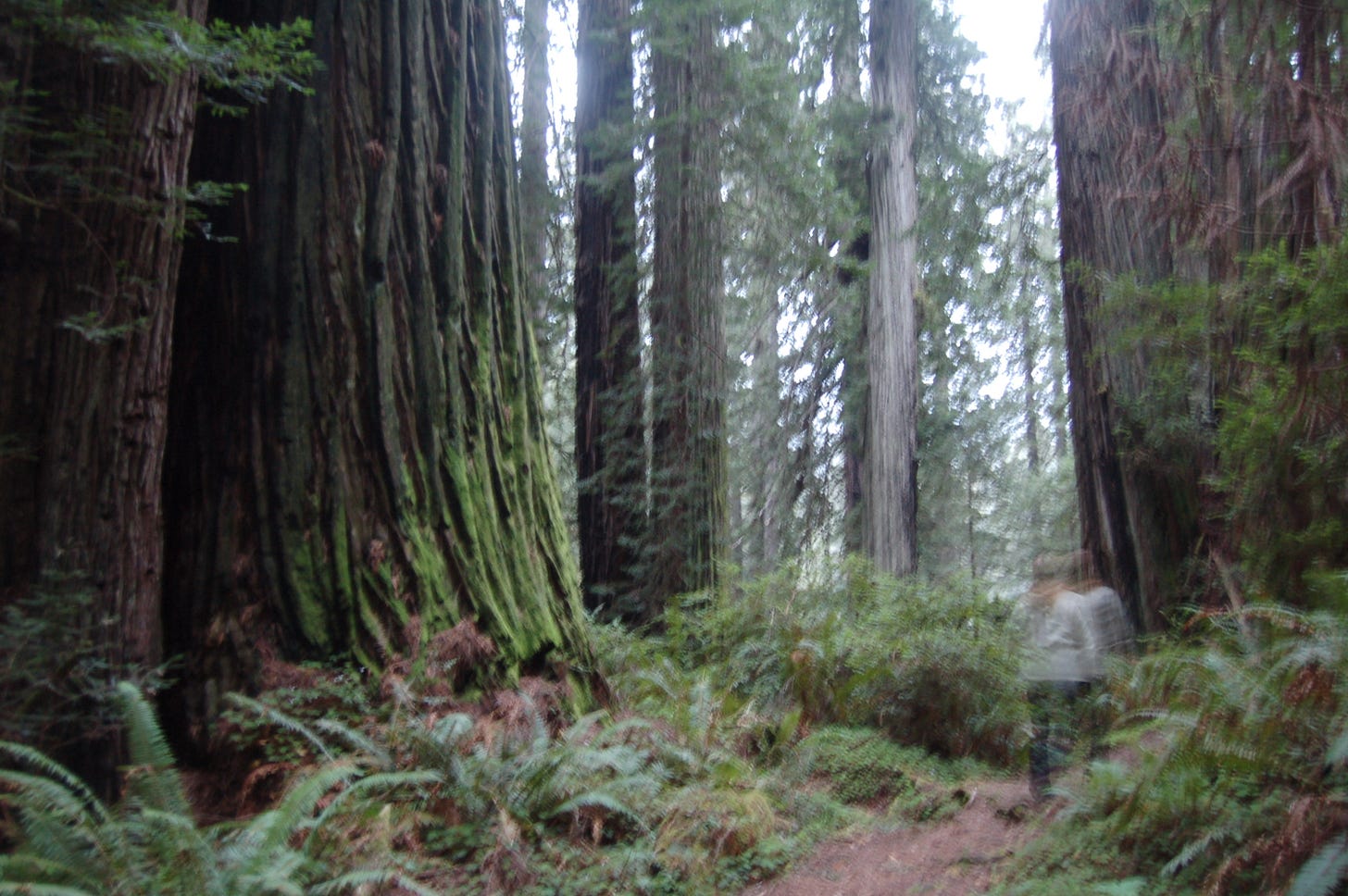Hello everyone: Heather and I are still moving, still in limbo. Everything is in storage until this weekend. Realistically, it will be another week or two before things settle down. Here’s what I have for you this week, hot off the presses:
An easygoing math teacher in my freshman year of high school would occasionally have to remind us that “mass ain’t weight,” shorthand for the difference between the inertia of an object and the force it exerts downward due to gravity. The emphatic phrase has stuck with me (if not its meaning – I had to look it up). So, channeling Mr. McCauley, I’ll remind you that weather ain’t climate. A hot day or week or month or year, even if unusually hot, is not a sign of the apocalypse.
The sign of the apocalypse is in the trend line over decades or centuries, with rock-solid geochemical evidence to back it up.
Which brings me to the recent heat spikes. There’s a great New York Times article with maps and charts on just how unusual the heat has been in the Pacific Northwest. Pair that with another Times piece on the chronic drought out West, and you’ll want to start thinking pretty hard about the force that civilization is putting on the climate accelerator. To be clear, neither of these articles is screaming about the linkage between our century-long imitation of a CO2-spewing supervolcano and the poor suffering people in Oregon, Washington, and British Columbia, but the conversation is there to be had. Mostly what it says to me is something that is particularly hard for most of us to grasp: the Earth’s climate is oddly sensitive.
We’re still social primates whose focus is on the now. Our natural tendency, I think, is to assume that the world we inhabit is unchanging. The disciplines of science and history (among others) retrain our minds, but the habit is still there. It’s not intuitive, even now, to walk through a forest or park and note the utter transformation – predators exterminated, plants introduced, soil exhausted, ecosystems reformatted – that’s occurred there in the generations before us. And on a planetary scale? How could the entire atmospheric envelope of the Earth be altered by a bunch of erect apes with smartphones? Well, the same way that the “inexhaustible” oceans are overfished and chemically altered, and the same way that the world’s rivers are dammed and the world’s wetlands are largely eliminated. We’ve been busy.
On the long-term (non-human) time scale, the planet’s climate fluctuates wildly in response to changes in earth systems (the carbon cycle and ocean circulation and plant productivity, etc.). The last 10,000 years or so of remarkably stable Goldilocks conditions that has accompanied every moment in the development of modern humans is apparently unusual.
But so is the amount of CO2 we’re emitting, and so Goodbye to Goldilocks and Hello to heat. Lots and lots of heat. Which is exactly what has been predicted by science for a long time. The greenhouse effect has been understood and described since the mid-1800s, and “in 1896 Swedish scientist Svante Arrhenius predicted that doubling CO2 in the atmosphere would warm the planet by about 4 degrees Celsius, a prediction that’s roughly in line with those of our most powerful modern supercomputers,” according to Peter Brannen in The Ends of the World. More generalized heat in the atmosphere alters weather patterns, and increases the likelihood and intensity of storms and heatwaves.
As the planet warms at an astonishing rate, the large-scale climatic consequences will come hard and fast. Correction: they are coming hard and fast. The future is now, as they say. Anyone who has lived in a rural area for more than a few decades can tell you that the climate (like wildlife and habitats) has changed, and that the previous generations noticed it too. Again, weather ain’t climate, but Canada just recorded its highest temperature ever, OR and WA crews had to patch up buckled roads, and Seattle repeatedly sprayed down its drawbridges to keep the metal from expanding and blocking the lift mechanism. The Texas power grid that failed last February, leaving two thirds of residents without power, begged customers this June to conserve energy during a heat wave that threatened to overwhelm the grid again.
All of which is another reminder that the infrastructure of civilization, from transportation to governance, is as yet entirely unequipped for a hotter, more chaotic planet. Paleoclimatologist Matthew Huber made this point in an interview with Peter Brannen:
“The problem is that humans can’t even handle a hot week today without the power grid failing on a regular basis,” he said, noting that the aging patchwork power grid in the United States is built with components that are allowed to languish for more than a century before being replaced. “What makes people think it’s going to be any better when the average summer temperature will be what, today, is the hottest week of the year… and the hottest temperatures will be in the range that no one has ever experienced before in the United States? That’s 2050.”
President Biden’s new infrastructure plan will spend billions on much-needed power grid upgrades and expansion, but I doubt it’s building a resilience capable of handling weeks or months of temperatures like those that just turned the Pacific Northwest into an Easy Bake Oven.
In case you’re looking for more bad 2050 news, a 2014 MIT study predicted that by 2050 five billion people (out of a projected 9.7 billion population) will live in water-stressed areas, with another billion coping with an insufficient water supply. This is just one example of how increased heat will exacerbate resource and population issues.
Imagine extreme heat events, like the recent one out west, happening more frequently, in more places around the globe, and for longer periods. They already happen twice as often as they did forty years ago. Imagine 110°F or 120°F for weeks in high humidity, with little respite at night. As with nearly every other aspect of the Anthropocene – or, if we’re being honest, with most aspects of modern society – the working poor will be hit the hardest. Think, for example, about who has 24 hour access to air conditioning, or who relies on a paycheck for difficult outdoor labor on farms/roads/construction sites, or who is stuck without transportation in treeless urban heat islands.
Matthew Huber coauthored a study in 2010 entitled “An Adaptability Limit to Climate Change Due to Heat Stress,” which argued that heat stress is a seldom-considered disaster-in-waiting. Human bodies simply cannot adapt to prolonged exposure to a constant 95°F with high humidity. (This combined measure of heat and humidity is called a “wet-bulb” temperature.) We need to sweat to create evaporative cooling in order to regulate our core temperature, but in high humidity at temperatures at or above our body temperature that doesn’t happen. Even young and healthy people will suffer and die if these conditions are prolonged. Older and health-compromised humans are at risk well before these conditions are reached, as we’ve seen in disaster-level heat waves in Europe in 2003 (35,000 people dead) and in Russia in 2010 (15,000 victims), where the wet-bulb temperature never got above 83°F. And this isn’t just about big heat events: Europe topped 100,000 deaths from heat stress in 2018.
If the body cannot adapt, civilization has to, either by preventing (and reducing) planetary heating, or by rearranging society to help all of us find protection from the heat. I’m not sure which of those tasks seems more daunting, but in reality we’ll have to do both if we don’t want heat to be a major cause of death by mid-century. Research suggests that once we raise global temperature by about five degrees Fahrenheit (we’ve already pushed it up by about two degrees) parts of the world will be suffering regularly with that hard reality of a 95°F wet bulb temperature. That’s in India, Africa, the Middle East, as expected, but it’s also in the U.S. Midwest, which Huber says will be one of the hardest hit areas by 2050 or so. The cute truism of a “hot and sticky” Iowa summer will become a lot less cute. Already more than a third of heat deaths globally are being attributed to climate change.
But I need to back up a bit and remind us all that, in another nod to Mr. McCauley, climate ain’t the Anthropocene. Global warming is our biggest sledgehammer, but by no means our only one. Intense and prolonged heat will speed up the churning and degradation of ecosystems on land and in the oceans we’ve already damaged through development, pollution, and excessive resource extraction.
Which is all just to say that humans are not alone, and will not be alone, in this suffering. On Earth, the company we keep is in the same overheated boat. As the climate crisis intensifies, and things both physical and political heat up toward their various boiling points, please remember that we are not alone in this. We’re taking the rest of life on Earth with us, wherever it is that we’re going. Well, actually, we’re bringing whoever is capable of surviving the changes we’re making. There are many, many species whose adaptability limit to heat is far lower than ours.
We are not alone, despite that incredibly foolish and oft-cited notion behind so much of our space exploration. Andy Weir, author of The Martian, said in a February 2021 National Geographic article about our obsessive exploration of Mars that “We are not a solitary people… we don’t want to be alone.” And yet, on their launch pads, those rockets that use ridiculous amounts of hot force in order to lift their mass up through and beyond the overheated atmosphere, are already surrounded by exotic, marvelous life-forms.
A Good Idea
Take a good, long look at the nearest non-human species – tree, flower, butterfly, bird, dog – and say out loud, “We are not alone.” Because we aren’t. We never have been. And the sooner we realize that, and realize the quality and importance of the company we keep – or really, that keeps us – the sooner we’ll do something to preserve the relationship.
So that’s my hot take for the week. Thanks for reading. If you like what I’m up to, please spread the word.
Until next week, take care and stay cool.
Links:
NYT article on Northwest heat wave: https://www.nytimes.com/interactive/2021/06/29/upshot/portland-seattle-vancouver-weather.html
NYT article on western drought: https://www.nytimes.com/interactive/2021/06/11/climate/california-western-drought-map.html
Peter Brannen’s book, The Ends of the World: http://peterbrannen.com/
2014 MIT study: https://news.mit.edu/2014/predicting-the-future-of-global-water-stress
“An Adaptability Limit to Climate Change Due to Heat Stress,” by Steven C. Sherwood and Matthew Huber: https://www.pnas.org/content/107/21/9552#ref-11
Scientific American article that explains the heat stress concept well: https://www.scientificamerican.com/article/heat-and-humidity-are-already-reaching-the-limits-of-human-tolerance/
National Geographic article on our obsession with Mars: https://www.nationalgeographic.com/magazine/article/why-are-people-so-dang-obsessed-with-mars-feature
In Other Earth-Shattering News:
A whole section of the Washington Post is now focused on climate solutions: https://www.washingtonpost.com/climate-solutions/
New satellite technology might be able to track microplastics in the oceans: https://scitechdaily.com/tracking-ocean-microplastics-from-space-see-the-great-pacific-garbage-patch-like-never-before/
The world’s plant life is being rearranged: https://e360.yale.edu/features/as-climate-warms-a-rearrangement-of-worlds-plant-life-looms
Short article on the rising popularity of kelp/seaweed farms in New England: https://www.economist.com/united-states/2021/06/26/why-new-england-is-going-wild-for-wet-weeds
New paper on how civilization might be able to reach 100% sustainable energy: https://scitechdaily.com/its-electrifying-how-earth-could-be-entirely-powered-by-sustainable-energy/
One of many new proposed nuclear technologies, supposedly safer and less expensive: https://www.economist.com/science-and-technology/2021/06/10/a-firm-founded-by-bill-gates-bets-on-a-novel-nuclear-reactor
Has the pandemic hastened the arrival of “peak oil”? https://e360.yale.edu/features/amid-troubles-for-fossil-fuels-has-the-era-of-peak-oil-arrived
A small-scale Republican movement to take climate change seriously: https://www.nytimes.com/2021/06/23/climate/climate-change-republicans.html
A whole suite of new satellites will detect methane leaks: https://e360.yale.edu/features/in-push-to-find-methane-leaks-satellites-gear-up-for-the-hunt







Brilliant.